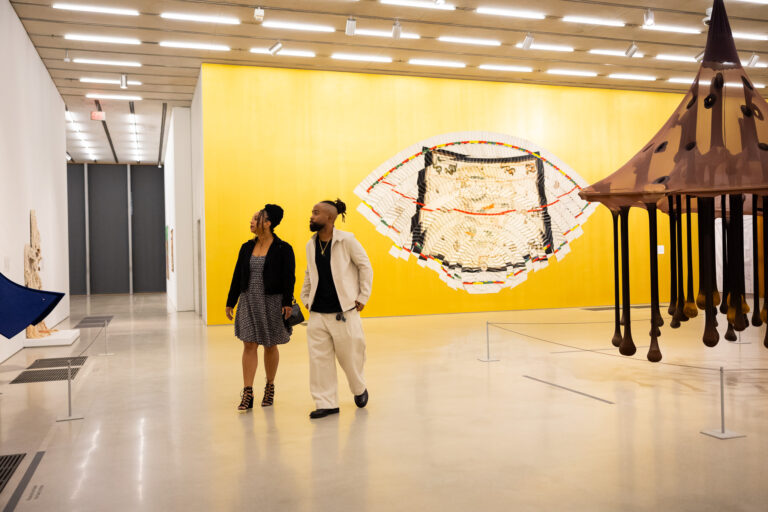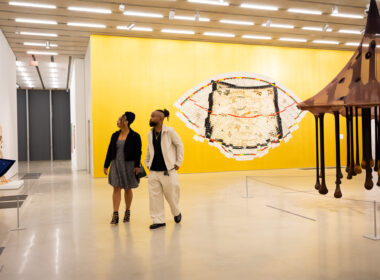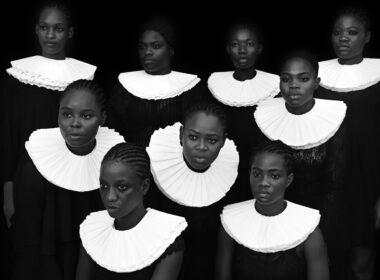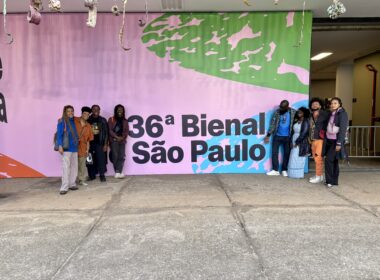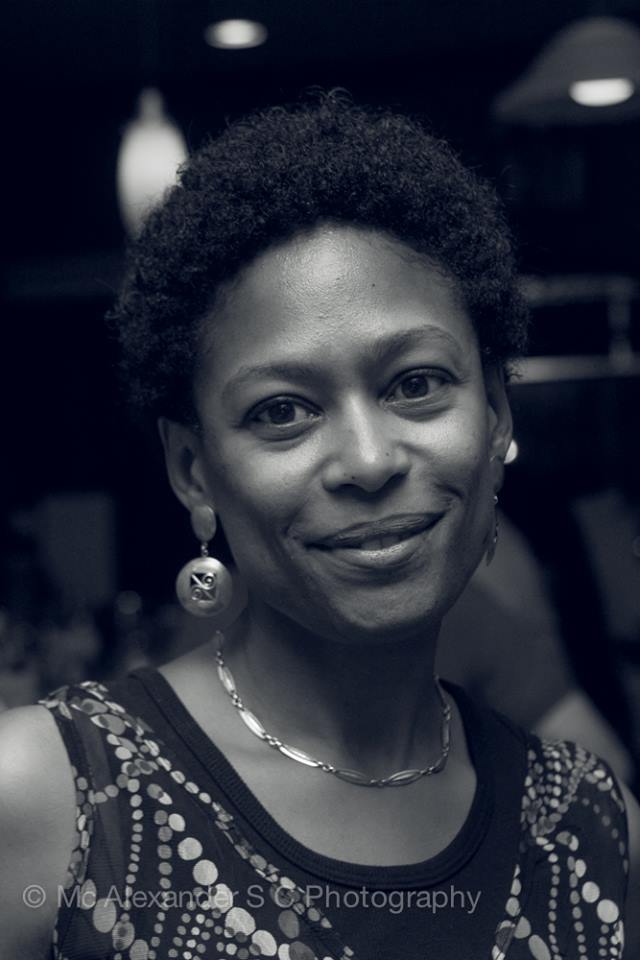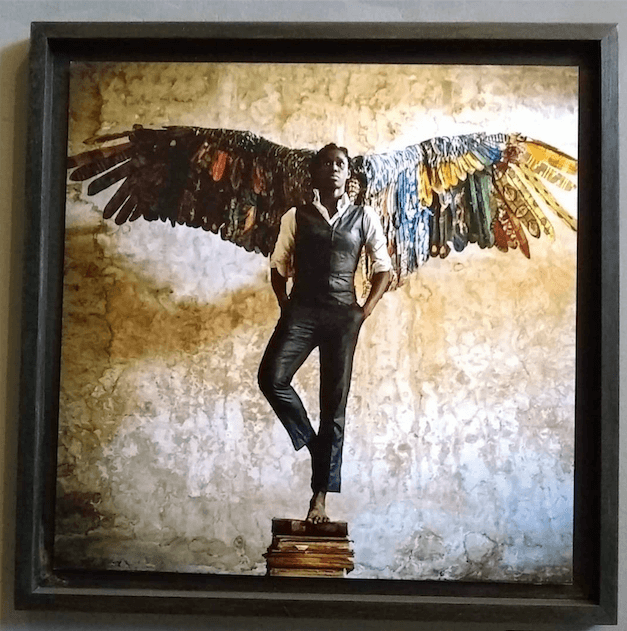Women Running the Arts is a new series that profiles Black women that hold executive positions in the arts. Our first interview is with Regine Roumain of the Haiti Cultural Exchange. Regine saw a need for an organization that celebrated and presented Haitian culture as a focus, and she filled that niche. 6 years later, Haiti Cultural Exchange is a vital part of New York’s art scene.
Melissa: So tell me about your background and what you currently do for the community?
Regine: Sure. You know that I’m the co-founder and the executive director of the Haiti Cultural Exchange. I’ve been doing this for the past six years. We were founded in 2009, but my entire professional career has been in the non-profit sector. A little over 17 years now, which sounds crazy, but that is true.
I started working at a Haitian-based, community-based organization in Brooklyn. I was their very first staff person, and I was still actually in school, so I was working with them part time and helped to shape and grow their programs, helped support their fundraising efforts. They didn’t have a staff person before me and helped to build the organization. I was there for four years, and then I went on to do some non-profit management work.
Then most recently, before I decided to take the leap and devote myself to Haiti Cultural Exchange, I was at the New York Women’s Foundation.I got a sense of the philanthropic angle of the field. I was a program officer there. I was in charge of their two largest portfolios, community organizing and economic development and security. They were focused on supporting non-profit organizations that were empowering women and girls. So I would read grant proposals, I would go out on site visits, I would help to determine which groups would get funded by the New York Women’s Foundation.
It was a great experience to be on that other side of thing, but it just became evident to me that my place was in the community. Every time I went on one of those site visits I was like, “oh my gosh I miss the work so much”. I wanted to be doing what those people were doing. I didn’t want just to be visiting. I felt very removed.
I very much recognized that there was a need for an organization like Haiti Cultural Exchange. While there are many terrific artists in our community, whether they be dance troops or musicians or visual artists, before Haiti Cultural Exchange it, there didn’t exist as an organization that was bringing all of those elements together. We’re a multi-disciplinary arts organization. We focus on the contemporary and the traditional. So I recognize that there was a gap.

Bann Konte: A Rara Storytelling Procession in Crown Heights. Photo courtesy of Haiti Cultural Exchange.
Waves of immigration were coming in the 50s and 60s, during the Duvalier regime, and people needed to settle here, and we created social services organizations. Learning English, becoming a citizen, how to navigate the New York or the United States bureaucracy, like more support services for people. Now as the community is getting more and more sophisticated, we’ve been here a long time, there are a lot of professionals here in New York, it was time to bring forth and organization like Haiti Cultural Exchange and to highlight our culture, highlight our artistic excellence.
So that’s what we’re trying to do with the organization with the vision that we would establish New York’s City’s first Haitian Cultural Center. That has always been the view of Haiti Cultural Exchange. We have started where we could start, in the sense of developing programs, working with children, doing the film festival, but the overall vision remains and we’re going to be working towards that in the next couple of years to establish New York City’s first Haitian Cultural Center.
Melissa: That’s exciting. Who else came to the table with you to put this together.
Regine: The vision was mine, but I brought together folks that I knew. I worked with them at the previous organization, and there were seven women, not all of them are still involved. It was seven of us that I brought around a table, and I was like, I want to do this, and they were very supportive of the mission and continued to be supportive, whether or not they’re on the board … But they are still very supportive of the organization.

Bann Konte: A Rara Storytelling Procession in Crown Heights. Photo courtesy of Haiti Cultural Exchange.
Melissa: Let’s discuss programming. Do you cover all areas of the arts or do you just focus on one area?
Regine: We are a multi-disciplinary community cultural organization. We concentrate on all aspects of the arts. We have a recurring artist talk where we bring in a person of interest to talk about their work. It’s called An n’ Pale, we do the film festival on a biennial basis, we have a multi-disciplinary festival called Selebrasyon! that we also do on a biennial. We kicked it off in 2014, and we’re gearing up for it now in 2016. It’s going to be May and June, and it’s all over the city, in venues all over the city, and it’s just different arts, activities and programs happening during those two months. It’s New York’s only festival of Haitian arts and culture. So we’re excited about.
We have a lot of youth programming. We do programming in schools where we bring in the oral history of Haiti, called Krik? Krak!, Haitian folk tales. We also bring in Haitian teaching artists, Haitian-American teaching artists to work with kids in the schools, whether it be developing murals or learning traditional Haitian drumming or dance.
So we have a lot of programs happening. We do something called Mizik Ayiti on an annual basis. So yeah, we are small, but we do a lot with the resources that we have.
Melissa: So I want to change the conversation to focus someone who runs an organization. What have been the high points of coming out and saying, “hey I’m going to do this, I’m going to dedicate my resources to an organization that needs to be built from the ground up in an area that can use this type of work”?
Regine: The kind of reception from the community has been amazing, we prioritize developing these programs and growing our constituency, and there’s so many times I get people saying “Regine, we needed this to happen, this is amazing.” The connections that people make as a result of coming to Haiti Cultural Exchange is amazing to see. I’ve heard so many people say “Oh, I met so-and-so, and I was able to bring this workshop to my school because I met this person”. Or I was able to network and get a part-time job. All of these connections that are made just by bringing the community together through the programs that we present is very, very rewarding.
Also, from the artist perspective, our artists, and it’s not only Haitian artists, I think it’s artists at large but in particular for artists of color in the New York sphere where there’s so much going on, and there’s so much competition. People are struggling to make their mark and any little way I can help, whether it’s by presenting them at the Brooklyn Museum which gives them a lot more visibility or showcasing them on our various platforms. I think that has been a big help to the artists, and I hear that from them as well, and that’s also very rewarding. Also rewarding is the ability to bring artists from Haiti, who may not be able to get as much recognition here, to the forefront. That’s also something that has been, and I’m looking to increase that, as we’re able to go along and grow our budget.
Melissa: And what are the challenges you’ve found running a non-profit organization?
Regine: Well, the rewards are many, but the challenges are many as well. I think funding for the arts, in general, is not huge regarding the landscape of funds available. Most funds tend to go to wards educational institutions, a lot of people give to their religious institutions. So the arts are not well supported in reality. Then within that scope of things we are presenting Haitian arts and culture so we’re competing on the New York scene with BAM and the Guggenheim and there’s not much left for Haiti Cultural Exchange, so fundraising is a challenge. Nobody starts a non-profit because they want to go looking for money. You start a non-profit because you see a need in a community, you have the desire to put a strong mission and vision forward, but the reality of the situation is you need money to be able to function.
So that has been challenging for the organization not only because we haven’t been able to grow to the level that we would like to see ourselves grow financially, but also it becomes difficult for me to retain staff because I don’t have the funding to be able to pay them adequately. That’s challenging.
Then I think the other thing that’s challenging with especially a small organization is that I have to wear so many hats. I’m very fortunate that I got excellent training regarding the non-profit sector. I didn’t just come into the industry and start Haiti Cultural Exchange; I had already done a lot of work in the sector, had a good understanding but it’s still difficult to wear so many hats, and not all the hats are my forte. I have to fundraise, I have to do the program, I have to handle administration, we have to do marketing, we have to do communication. All of those things tend to be ultimately my responsibility. It can be a lot.
Then just juggling. People who know me know that I really do consider Haiti Cultural Exchange as my third baby. I have two young girls but I spend a lot of time, effort, emotional capacity in the organization so balancing that out with the other things that need to happen in my life has been a challenge. I’ve gotten better at it as I’ve gone along and recognized that no, this is family time, turn off the phone, it’s okay. Whoever’s calling me can wait until Monday. In the beginning, it was more challenging. I felt like Haiti Cultural Exchange needed so much of my nurturing. At the same time, I was of the age, I had children, and they also needed a lot of nurturing. So that was difficult. But I’ve gotten better with time.

Mizik at Drom NYC. Photo courtesy of Haiti Cultural Exchange
Melissa: When somebody who is thinking about starting a non-profit arts organization, what is the skill set that they need to nurture before they take that leap.
Regine: Wow. I would say that a deep understanding of the non-profit sector at large, the various elements whether it be fundraising, administration, program development. I think program development regarding an arts organization is critical. What kind of programs are you putting forth that people will want to attend? A programmatic vision or curatorial vision of sorts. I think a deep understanding regarding the content.
Melissa: Where did you get your training before you actually started the cultural work?
Regine: I graduated from St. John’s University in Queens with a degree in Communication Arts. So mostly marketing, and a minor in Business Management. That was my educational background. But I have to say that the working on the job, being part of a non-profit, having a lot of responsibility very early, having to figure things out and then also being in these different roles. I was developing programs very early on. I was fundraising very early on. I was grant-writing very early on.
Then I went and worked for a non-profit consulting firm that also gave me a whole set of other skills. They were just focused on best practices. What are the best practices for non-profits? I got to see what they were. What does it mean to have a strategic plan in place? What does it mean to have a solid board and develop that board over time? So on the job kind of skills were where I got the most experience if I could say that.
Now, we do have a lot of interns here at Haiti Cultural Exchange, and I really pride myself on the fact that they leave this internship with some concrete skills that they can take forward in their careers. I know lots of folks that have interned wherever, anywhere, legal internship, any internship, they leave with barely anything. Besides the name, which is wonderful to be able to put some big name on your resume. Sometimes that really does help but concerning on the job kind of real experience, the folks that come through Haiti Cultural Exchange leave with a stronger skill set. That was helpful to me early in my career, so I hope that is something they can take forward in their careers.

An n’ Pale| Cafe Converstion with Gina Athene Ulysse. Photo courtesy of Haiti Cultural Exchange
Melissa: Can you give me a business hack that helped you at the Haiti Cultural Exchange? A little tip, a little something that has helped push your business forward.
Regine: I think that being very not only open but very deliberate about your partnerships because early on we really focused on building partnerships and we were able to grow our footprint that way relatively quickly. Because we were at the Brooklyn Museum, we were at the New York Historical Society. We are part of Central Park Summer Stage. Partnerships and collaboration are key.
Melissa: What can we expect from you for 2016. What do you have coming up in the next six months?
Regine: Selebrasyon! Selebrasyon! Selebrasyon! Like I said Selebrasyon! is our biannual festival of Haitian arts and culture, it’s going to be in May and June, and it’s going to be wonderful. We’ve been working on it for a while now; we’re fine tuning the program and schedule. We’re going to have music, we’re going to have art exhibits, we are going to have programs for children and it’s going to be happening all over New York City, and we want as many people to experience Haitian culture throughout those two months.
To learn more about Haiti Cultural Exchange or to make a donation, visit http://haiticulturalx.org
